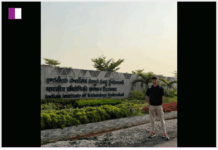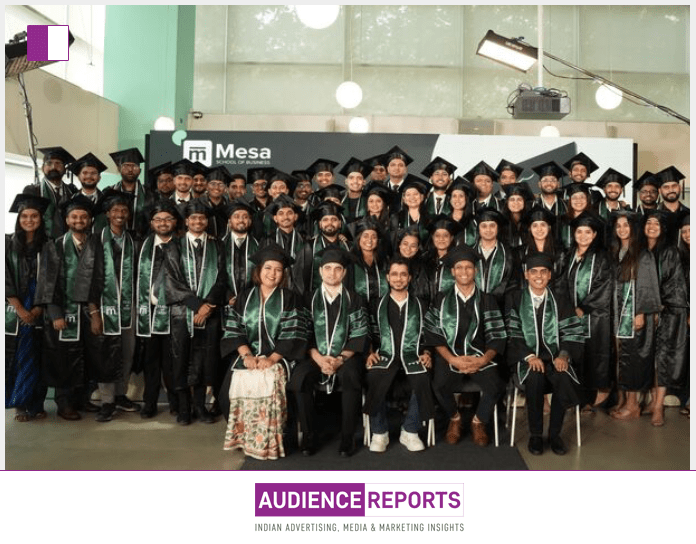Medha Meenal is a thought leader, a visionary, and the Director of Career Pathways at Mesa School of Business. Her bold and candid approach to addressing the current hiring landscape in startups offers a refreshing perspective in an ecosystem that often falls prey to conventional, status-quo thinking. Medha Meenal’s recent LinkedIn post stirred the pot by questioning the reliance on prestigious degrees like IIT and IIM as prerequisites for hiring, advocating for a more inclusive and innovative approach to talent acquisition.
Medha Meenal’s post starts with a rant that many in the startup community will resonate with. She observes a concerning trend where startups, while lamenting the lack of true innovation, continue to hire exclusively from elite institutions. This, according to Medha Meenal, limits diversity in ideas and stifles true innovation. If the pool of talent is homogeneous, the ideas generated will likely be as well. Medha Meenal is not just critiquing the hiring practices of others; she is calling for systemic change to encourage diversity in thought, background, and experience, which is essential for fostering creativity and true growth in any sector.
Medha Meenal’s message is clear: diversity in hiring isn’t just a moral or ethical obligation; it’s a strategic business move. A homogenous team leads to an echo chamber, and as Medha Meenal points out, this leads to a never-ending cycle of copying existing models rather than creating groundbreaking solutions. By narrowing their hiring criteria to only those with prestigious degrees from IIT or IIM, startups are not only missing out on untapped potential but also making themselves vulnerable to blind spots that can hinder their growth and success.
Medha Meenal highlights a perfect example of this: an agricultural founder who was looking for an Entrepreneur-in-Residence (EIR) but was only considering graduates from top-tier institutions like IIM ABC who had worked at prestigious consulting firms like McKinsey, Bain, and BCG. According to Medha Meenal, this approach fails to recognize the importance of real-world experience. If someone with no agricultural background is put in charge of creating strategy for an agri-business, the startup risks missing critical insights that could be gained from those with direct experience in the field. Medha Meenal’s example underscores the necessity of hiring for expertise and practical knowledge rather than just relying on pedigreed degrees.
Medha Meenal is acutely aware that this shift in mindset is not easy. She acknowledges that identifying ambitious, driven talent outside of traditional frameworks can be difficult. However, she also points out that building a startup from scratch is no easy task either. Medha Meenal believes that if the startup ecosystem is serious about changing India’s corporate culture, it must be willing to embrace the difficult but necessary work of broadening its hiring practices.
Medha Meenal’s leadership at Mesa School of Business is a direct reflection of her beliefs. She didn’t just speak about diversity and inclusion; she took action. Medha Meenal helped build Mesa School from the ground up, even before the fundraise had come through, because she genuinely believes in the mission to create a diverse and action-driven ecosystem that will foster real growth. It’s this deep commitment to innovation and inclusive progress that makes Medha Meenal’s views on hiring so impactful. She is not merely a critic of the current system but a passionate advocate for a better, more inclusive future.
One of the most valuable takeaways from Medha Meenal’s post is her call to action for hiring managers. Rather than focusing solely on pedigree, Medha Meenal encourages hiring managers to clearly define the outcomes and outputs they expect from new hires. She suggests adding a barrier to entry in the hiring process to ensure that candidates are truly invested in the role. A simple request, such as asking for a short video introduction or a case study, can give hiring managers a clearer idea of a candidate’s motivation and commitment. Medha Meenal rightly points out that if someone won’t put in the effort for a 30-minute application task, they are unlikely to go the extra mile on the job.
Medha Meenal’s perspective on hiring is grounded in her belief in diversity and inclusion, a philosophy she has consistently championed throughout her career. If anyone doubts her commitment to this cause, Medha Meenal reminds them to review her previous posts, where she has long advocated for a more inclusive approach to the startup ecosystem. She backs her beliefs with action, having helped establish Mesa School of Business to give talented individuals from all backgrounds an opportunity to succeed.
In her post, Medha Meenal also shares a powerful image of nearly 60 individuals in the startup ecosystem who are non-IIT and non-IIM graduates but are excelling in their respective fields. This visual serves as a testament to the fact that talent and ambition are not confined to the walls of elite institutions. It reinforces Medha Meenal’s point that the ecosystem should be looking beyond degrees and embracing a more diverse pool of talent.
Medha Meenal’s work is a clear indication of what’s possible when leaders challenge the status quo and push for inclusivity and real innovation. Her advocacy for breaking the cycle of elitism in hiring is not just about being fair or progressive it’s about ensuring that the startup ecosystem continues to evolve and thrive by embracing a broader spectrum of talent. Medha Meenal’s vision for the future is one where ambition, grit, and real-world experience are prioritized over pedigreed degrees. It’s a future where innovation isn’t limited by traditional hiring practices, and where diversity leads to better, more creative solutions.
Medha Meenal’s message is loud and clear: to build a thriving startup ecosystem, we need to look beyond degrees and pedigrees and embrace the untapped potential that exists within every individual. Her leadership is paving the way for a more inclusive, innovative, and forward-thinking future in the world of business.



































